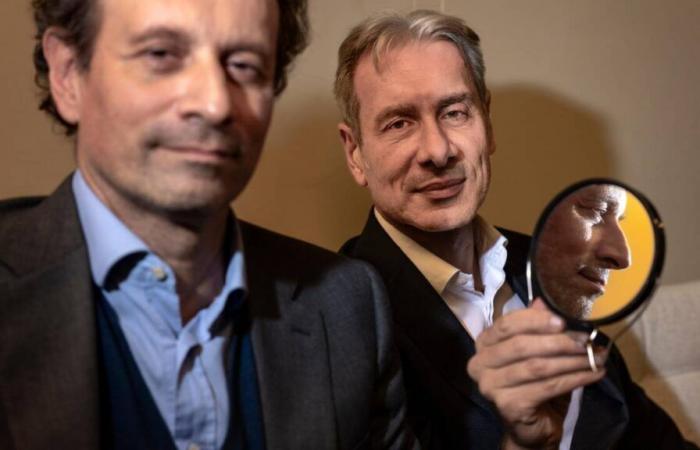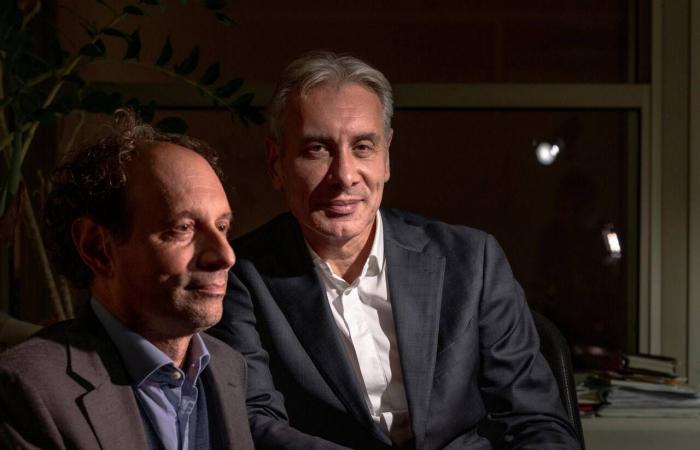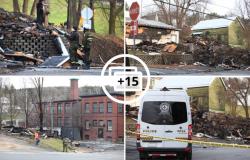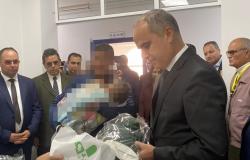Shaping what happens in a country
In the late 1980s, economics was not taught before university in Italy, where the Benignos are from, having grown up near Lake Maggiore. “I chose Bocconi a bit by chance, without knowing clearly what I wanted to do,” continues Gianluca, professor of economics at HEC Lausanne since the summer of 2022. However, this university is known for its teaching of economics, and I was fascinated by the possibility of shaping what happens in a country through political decisions.”
The crisis of the Italian lira also fueled their vocation “in 1992”, specify in unison the two brothers, met in Gianpaolo’s office. “Our teachers at Bocconi talked about it and wrote in the newspapers, it made me want to do the same,” remembers Pierpaolo, who was then unaware of the long road to get there. The “fratelli” continue to study, they have facilities for mathematics and the technical elements of economic sciences.
They found the time to obtain a piano diploma (Pierpaolo admired Maurizio Pollini and Gianluca preferred concertos to pianists), but were still completely unaware that universities existed in the United States. Until one of their teachers, Fabio Ghironi, currently at the University of Washington, explained to them that they could cross the Atlantic after their diploma. It will be towards California and the University of Berkeley for Gianluca and New Jersey and Princeton for Pierpaolo, supported by scholarships obtained thanks to their academic excellence.
Strong in specialized English
This first move abroad turns into a culture shock. The language barrier turns out to be difficult to overcome, and a bit unusual. Gianluca works in English, writes research in this language, he masters the technical vocabulary of economic science. But “everything else, daily life, was foggy,” remembers the adopted Lausanne resident, who admits to having the same problem today with French. His brother struggled at the time to understand the jokes of his Princeton colleagues. But both are absorbed in studies and spend hours on the phone together, including to find out what the other had learned, in these pre-internet times.
Their research subjects become quite similar, but again a little by chance. Both ended up doing their thesis with two professors, who themselves worked together.
Who’s who of academic research
Listening to them tell their stories in the same relaxed but precise tone, with their very similar voices, we say to ourselves that the Benignos are not very keen on name dropping, which consists of slipping well-known names into a conversation. So we take care of it for them.
These two professors who guided them towards the doctorate were called Kenneth Rogoff (chief economist of the International Monetary Fund from 2001 to 2003, then professor at Harvard) and Maurice Obstfeld, who became advisor to Barack Obama in 2014 then director of studies of the FMI in 2015, being replaced upon retirement by Gita Gopinath, a classmate of Pierpaolo.
In addition to Rogoff, Pierpaolo’s thesis committee included Michael Woodford, a world reference for monetary theory, and Ben Bernanke, future president of the Fed between 2006 and 2014, then Nobel Prize in economics in 2022. After his doctorate, Gianluca passed for his part by the Bank of England, then the New York Fed, the London School of Economics, Princeton, the IMF then again the New York Fed, where he directs international research.
Most recently, a research paper by Gianluca was presented at the Jackson Hole Symposium, where members of the Federal Reserve meet each summer to brainstorm. This paper, which focuses on the lessons of the inflationary surge of the 2020s, was co-written with Icelandic economist Gauti Eggertsson, one of the most influential researchers in the world on macroeconomic issues.
The youngest Benigno did not attend the prestigious symposium, only one author being invited per paper, but that does not bother him more than that. “My co-author appreciated it and it was something that was positive for our visibility,” summarizes Pierpaolo. “And you went to the Sintra Forum, the equivalent of Jackson Hole for the European Central Bank,” his big brother reminds him. We feel the complicity and understanding between the brothers, never any rivalry.
“They wanted to invite Gianluca”
The next step for Gianluca will be the publication of his book on monetary policy, in early 2025. Now that he has “deepened my knowledge of the field for thirteen-fourteen years”, and that this book completes this part of his career, the The teacher in Bern will move on to another subject, he does not yet know which one, perhaps inflation, on which he has recently worked.
Another reason for the closeness of the two brothers is that they have always worked on similar subjects, close to current issues linked to central banks or monetary policies. To the point of creating confusion, sometimes. Invited for a conference in Canada, Pierpaolo was a little suspicious because the theme did not correspond to my specialty. “Then someone asked me how things were going in London. That’s when I understood that they wanted to invite Gianluca.”
Gianluca Benigno
1970 Birth.
2000 PhD at Berkeley.
2010 and 2014 Birth of his daughters.
2018 Federal Reserve Bank of New York.
2022 Professor at HEC Lausanne.
Pierpaolo Benigno
1971 Birth.
2000 PhD at Princeton and marriage.
2001, 2003, 2009 Birth of his children.
2020 Professor at the University of Bern.







